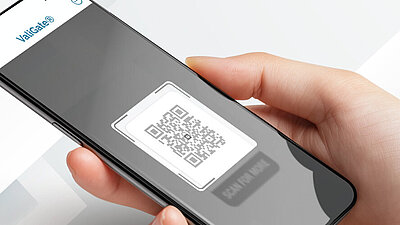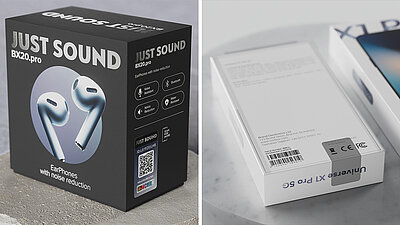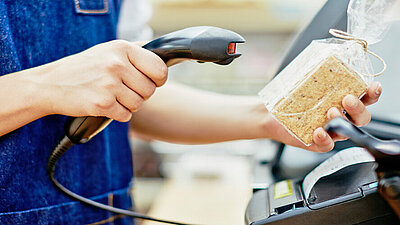The problem with counterfeit alcohol and what brands can do about it

Imagine how a seemingly harmless sip of your favorite beverage could quickly turn into a potentially life-threatening situation or even death. This scenario is becoming increasingly realistic, as the number of counterfeit alcohol has been rising dramatically around the world. This not only jeopardizes the health and safety of consumers but also poses a substantial threat to the integrity and reputation of renowned brands.
From black markets to online platforms, counterfeit alcohol has flooded global markets, presenting a multifaceted danger that extends beyond mere monetary losses. The production and distribution of fake alcoholic beverages pose severe health risks, often containing harmful substances like methanol or other toxic chemicals. These mixtures, packaged deceptively to resemble authentic brands, can lead to severe illness, permanent health damage, or even fatalities for unsuspecting consumers.
The issue of counterfeit alcohol also inflicts significant economic ramifications on legitimate businesses. Established brands invest heavily in quality assurance and adhere to stringent production standards to ensure consumer safety. However, counterfeiters capitalize on the reputation and popularity of these trusted labels, undercutting the market with cheap imitations. This not only compromises the financial stability of authentic brands but also erodes consumer confidence.
Despite its numerous advantages, the internet has become a breeding ground for the spread of counterfeit alcohol. Online marketplaces, social media platforms, and illicit websites are used for the sale and distribution of fake alcoholic beverages. These platforms have made it harder to regulate and stop this illicit trade because they are anonymous and easy accessible.
The alcohol market
As of recent data, the global alcoholic beverages market size was valued at around $569.58 billion USD in 2023. The industry encompasses various segments, including beer, wine, and spirits, each contributing significantly to the market's overall worth.
The issue of counterfeit alcohol poses a significant obstacle amid this thriving marketplace. Reports and studies have indicated that the counterfeit alcohol market constitutes a notable fraction of the overall alcohol market.
According to a recent study by Euromonitor, up to 26 percent of all alcoholic beverages consumed globally are illegal, resulting in annual fiscal revenue losses of $8.9 billion. The Fraud Advisory Panel reports that the EU alone loses €3 billion per year to counterfeit alcohol. In the UK alone, fake alcohol costs the economy more than £200 million (US$242m) per year, and leads to the loss of nearly 3,000 jobs.
The scale of counterfeiting varies across regions, influenced by factors such as regulatory oversight, law enforcement capabilities, and consumer awareness. In some areas, the counterfeit alcohol market might represent a smaller percentage, while in others, particularly regions with less stringent regulations or active illicit networks, the appearance of fake alcohol could be significantly higher.
The lure for counterfeiters lies in the substantial sums they can make by selling fake alcohol, often with lower production costs than the real thing.
Which alcohol gets counterfeited most?
Counterfeiters are opportunistic, targeting various alcoholic products based on factors like popularity, brand recognition, production costs, and market demand. While almost any alcoholic product can be counterfeited, certain categories tend to be targeted more frequently due to their widespread consumption and brand value.
Spirits: High-end spirits such as whisky, vodka, rum, gin, sake, tequila and rice liquor are prime targets for counterfeiters due to their premium prices and global demand. Brands with established reputations and luxury appeal often face the most counterfeiting. Expensive bottles and limited editions are especially vulnerable, as counterfeiters aim to capitalize on their exclusivity and high market value.
Wine: Fine wines, especially prestigious labels and vintages, are also susceptible to counterfeiting. Counterfeiters may refill authentic bottles with cheaper wine or produce convincing replicas of labels and packaging to deceive consumers. Older and rarer vintages fetch higher prices, making them lucrative targets for fraud.
Beer: While less common compared to spirits and wine, popular beer brands are not immune to counterfeiting. Counterfeit beer can range from unauthorized replicas of packaging to imitation craft beers sold at lower prices.
Liqueurs and specialty drinks: Brands producing liqueurs, specialty cocktails, or unique alcoholic beverages might also face counterfeiting, especially if they hold a distinct market position or have gained popularity among consumers.
What makes counterfeit alcohol so problematic?
Counterfeit alcohol presents a myriad of dangers that extend far beyond the realms of financial losses or compromised brand reputations. The deceptive nature of fake alcoholic beverages conceals significant risks that pose severe threats to consumers' health and well-being.
Toxic Ingredients: Counterfeit alcohol often contains substances that are not meant for human consumption, such as methanol, industrial alcohol, or other toxic chemicals. These substances can cause a range of health issues, from nausea, vomiting, and headaches to severe organ damage, blindness, and, in extreme cases, fatalities.
Methanol, in particular, is a highly toxic form of alcohol that can lead to severe health complications or death, even in small amounts. It is both odourless and colourless making it difficult to spot. Already a small volume of methanol is poisonous, with symptoms taking up to 24 hours to display. It's scary that some fake alcohol has 44,000 times more methanol than what's considered safe.
This can also lead to long-term health consequences, as prolonged exposure to toxic counterfeit alcohol can cause liver damage, neurological disorders, and even irreversible harm to vital organs.
Public Safety Concerns: Beyond individual health risks, the distribution of counterfeit alcohol poses broader public safety concerns. Large-scale distribution of fake alcohol can lead to widespread health crises, affecting communities and straining healthcare systems.
Lack of Quality Control: Illegitimate alcohol producers operate outside regulated environments, bypassing quality control measures adhered to by legitimate brands. The manufacturing conditions of counterfeit alcohol are often unsanitary and uncontrolled, leading to the risk of contamination and the presence of harmful bacteria or impurities.
Misleading Packaging: Counterfeiters meticulously replicate labels, bottles, and packaging to mimic authentic products, making it challenging for consumers to differentiate between real and fake alcohol. As a result, unsuspecting consumers may unknowingly purchase and consume counterfeit alcohol, believing it to be genuine.
Economic Impact: The prevalence of counterfeit alcohol not only jeopardizes consumer health but also impacts the economy. Authentic alcohol brands suffer financial losses due to reputational damage and decreased consumer trust, while governments lose revenue from taxes on legitimate alcohol sales.
Example: The problem with counterfeit tequila
Counterfeit tequila presents itself as a good example to highlight the multifaceted issues that surround counterfeit alcohol. Authentic tequila production is regulated by strict standards set by the Mexican government, specifying the regions where blue agave can be grown and the processes involved in its distillation. Tequila must be made with the Weber or Blue Weber varieties of the agave plant, with a minimum of 50% of the alcohol content derived from agave sugars. Premium brands are even made with 100%.
Tequila is exclusively produced in the Mexican states of Jalisco, Nayarit, Tamaulipas, Michoacan, and Guanajuato, and is subject to strict regulation by the Tequila Regulatory Council (CRT). According to Drinks International, the top-selling brands on the market in 2023 were Don Julio, Patrón, Olmeca Altos, Ocho and Jose Cuervo.
However, counterfeit tequila undermines these regulations, leading to various problems, from economic all the way to cultural.
Counterfeit tequila often contains additives and substitutes that may be harmful. Using cheaper ingredients or shortcuts in the production process can result in an inferior product that not only lacks the authentic taste and quality of real tequila. It also poses health risks to consumers, as it is often spiked with ethanol, methanol and other low-cost ingredients.
Furthermore, counterfeiting has an economic impact, as it undermines the tequila industry by diverting profits away from legitimate producers. This practice not only hurts the companies that invest time and resources into authentic production but also impacts the local economy of the regions where tequila is traditionally made. A Mexican study from 2020 suggests that 20 to 50 per cent of tequila sales are fake, which is equivalent to 60m litres of the liquor and represents an economic loss of around $550m.
On top of this, tequila holds a significant cultural value in Mexico, and counterfeit products misrepresent this heritage. By passing off fake tequila as authentic, it dilutes the cultural significance and authenticity of the drink, which is an essential part of Mexican tradition.
No wonder that authorities in Mexico are worried and are constantly trying to hunt down counterfeit bottles. The Tequila Regulatory council (CRT) reported in 2020, that they had destroyed a total of 3.5 million liters of suspect tequila in the past 18 years.
How can brands fight counterfeit alcohol?
Fighting back against counterfeit alcohol involves a multi-faceted approach that encompasses various strategies aimed at prevention, detection, and enforcement. Here are several ways to combat the issue:
Authentication Solutions: Implement technology for product authentication. Unique identifiers on alcohol packaging can help track products through the supply chain and enable consumers to verify authenticity via apps or websites.
We have many different solutions available to protect your alcoholic beverages:
Security Labels: Our security labels are specially designed to be applied to bottles and are guaranteed to protect against counterfeiting.
Printed Security: Our tamper-proof ValiGate® Direct Print marking can be printed as part of your bottle label or packaging design. This reduces both the implementation effort and the environmental impact.
Security Seals: Our HighPerSeal© provides maximum protection against refilling and includes an easily identifiable proof of first opening. Upon manipulation, it displays an irreversible void effect, maintaining evidence of tampering even if resealed. We offer this seal also in a sustainable and decorative version for bottles and/or packaging.
SCRIBOS HiddenCode: Our HiddenCode label exhibits a tamper-proof void effect upon initial opening, thereby providing maximum protection against unauthorised opening, tampering, theft, and refilling. On top of this, the code concealed within the void shields loyalty program codes from unauthorised access and abuse.
All our solutions are connected to our digital platform SCRIBOS 360. This gives consumers the ability to check the authenticity of their product via their own smartphone. At the same time, this tracks the movement of alcohol products from production to consumption. This helps identify any points where counterfeit products entered the market and gives the information needed for targeted action.
Check Online Sales: Monitor online platforms where counterfeit alcohol is often sold. Implement measures to verify the authenticity of sellers and products, and take action against illicit online sales. We can assist you with this matter through our partnership with the online brand protection company globaleyez.
Public Awareness Campaigns: Educate consumers about the risks associated with counterfeit alcohol. Promote awareness through campaigns that highlight the dangers of consuming fake or illicitly produced alcohol and encourage consumers to purchase from reputable sources. Companies and brands often hesitate to undertake such campaigns for fear of a drop in sales. However, if executed skilfully and focused on promoting 'original quality', sensitizing consumers to this issue becomes a crucial point in ensuring their safety and well-being. Additionally, this approach can also enhance the reputation of the brand by demonstrating a commitment to consumer welfare and product authenticity.
Collaboration with Law Enforcement: Foster collaboration between alcohol industry stakeholders, law enforcement agencies, and regulatory bodies. This collaboration can include sharing information, conducting joint operations, and developing strategies to target counterfeit alcohol networks.
Combating counterfeit alcohol is a complex challenge that requires a concerted effort. However, the benefits are multifold: not only are you protecting your consumers from hazardous liquids, but you can actually increase the revenue of your brand. Companies sometimes forget that the more counterfeit versions of their alcoholic beverages are sold, the more money they lose. Every counterfeit bottle sold, decreases the revenue that the company could have been making. So if you are protecting your products, you are automatically increasing your revenue.
It is time to protect your image, revenue and consumers. Let our brand protection experts consult you.




